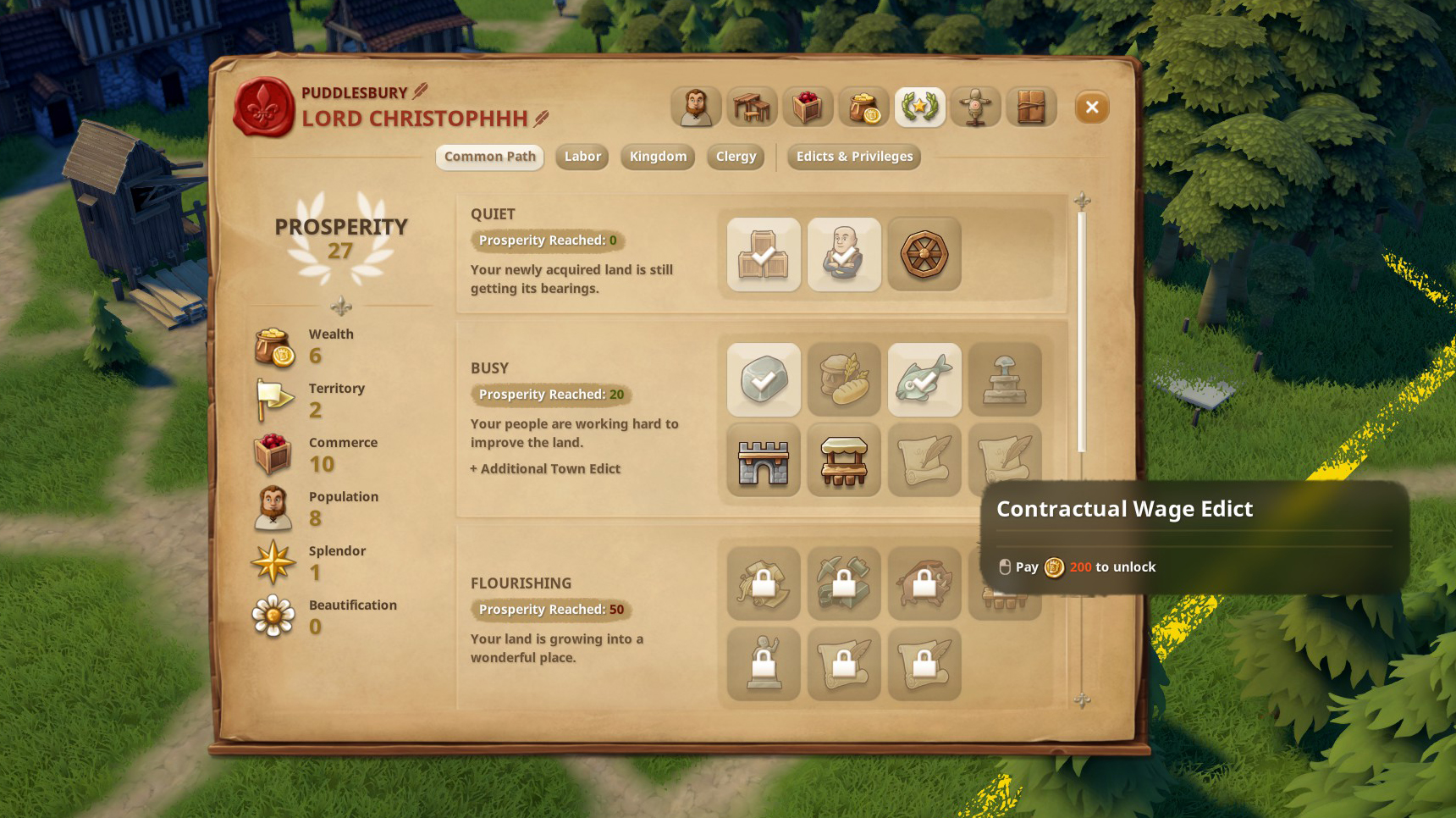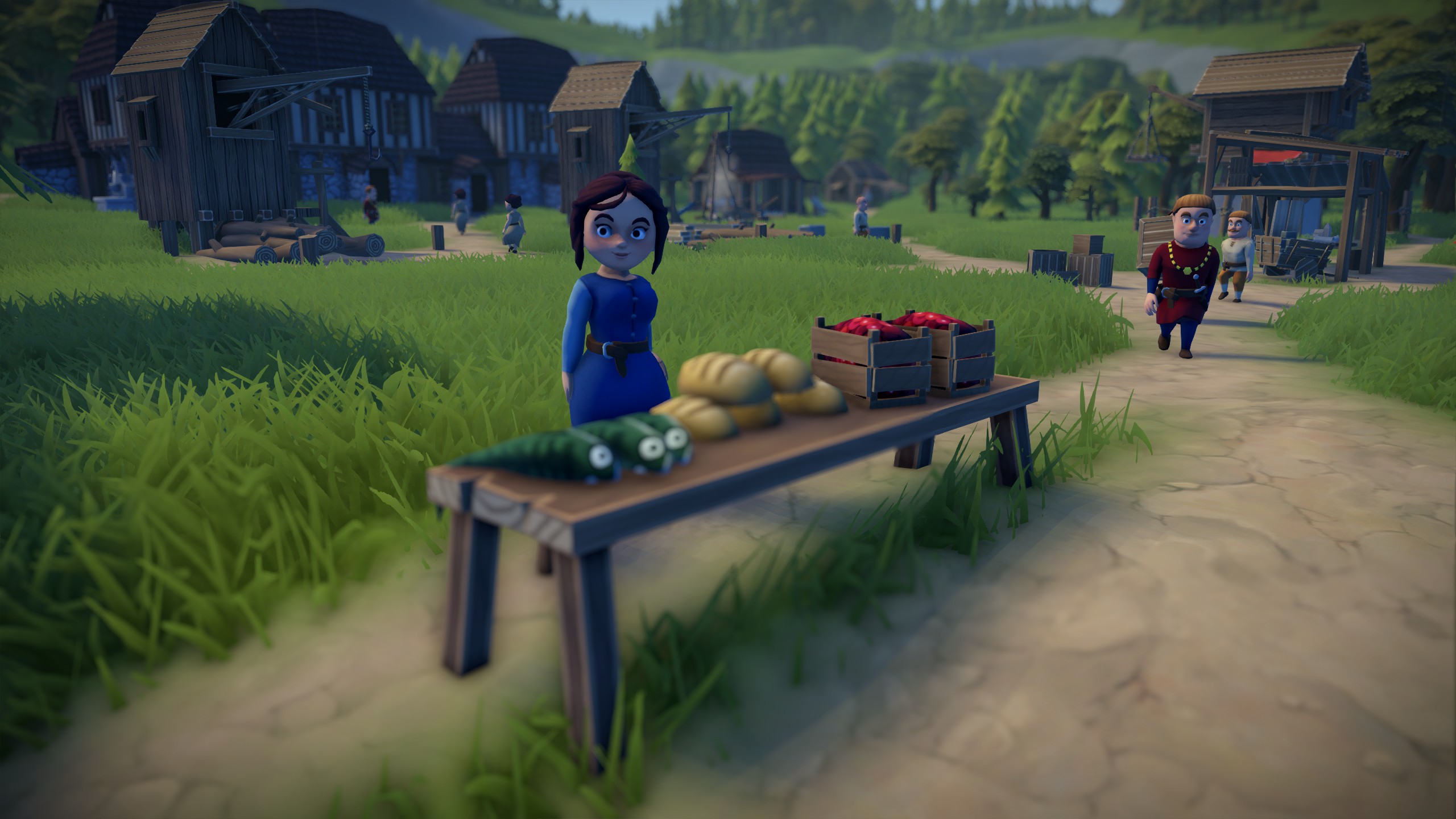One of the best city builders around is getting a hefty update
I recently took a look at the exciting future promised by the next wave of city builders, but I've also been spending time with current city building games like Farthest Frontier and Cities: Skylines. And I just found the perfect excuse to go back to another of the best city builders out there, Foundation, which has been in early access on Steam since 2019. Foundation is preparing for a big update, version 1.9, and I got the chance to try it out before it arrives.
If you've never played Foundation, one of the most appealing things about it is that it's a completely gridless city builder. Typically, I'm all about grids: there's something immensely satisfying about laying out roads precisely and carefully snapping buildings into place and winding up with an orderly, well-optimized town.
But ultimately I've come to prefer Foundation's approach, which doesn't involve drawing roads. Instead, as in the also excellent Ostriv, citizens create paths simply by walking the same routes over and over, eventually wearing down the grass to create their own desire paths and roads. You zone areas for residences but the citizens build their own homes however they want within those borders. The end result definitely isn't as orderly as most city builders but it feels pleasingly organic, the way a real village might develop over time: managed, but not micromanaged. It's a pleasing way to see a city slowly evolve and grow.
Update 1.9 retains that organic feel, but it also changes a lot in terms of how progression through the various tiers works. Unlocking new buildings is now based on prosperity. Your village's prosperity score is determined by several factors: you level of wealth (itself determined by calculating factors like taxes, trade, and upkeep), how many map tiles you've purchased, the number of trade routes you have, your population and their status (commoners, serfs, etc), your city's splendor (which can be increased by certain building features) and beautification (decoration). Only upon reaching prosperity milestones do certain buildings become available—for instance, you need to reach a prosperity score of 20 before things like fishing, farming, and baking become available, and then it costs a bit of gold to unlock each.
I struggled a bit at first with this new progression system. Due to spending a lot of gold to unlock new map tiles early on, I wound up broke, and with my city costing just as much as it was earning found myself stuck at a prosperity score of 19. After a second try, I realized that if I didn't try to gobble up map tiles too quickly, it was easier to become more prosperous in the early game. Expanding was a bit slower than I remember the last time I played Foundation, and I had to be really cautious about overspending, but my new city is becoming prosperous more quickly in the second tier, and I'm more than halfway to the next set of unlocks.

Law and order
One of the more interesting parts of the 1.9 update is a system called edicts, a new set of laws you can apply to your town once it has grown and become prosperous. The interesting thing about edicts is that they come with both a benefit and a drawback. For instance, tools are a consumable resource needed to build most buildings, and in the early game there's no way to produce them yourself so you have to rely on buying them from traders. If you find yourself struggling to buy or produce tools, or just want to burn through them less quickly, you can enact an edict that means you're refunded 50% of the tools following a building's construction. The downside is that the construction itself will take longer to complete, as if your builders are being more careful not to ruin their hammers and saws while they work. It's an interesting compromise to consider.
If you find your city flush with food and don't need the extra money from traders, you may want to enact an edict that doubles your mineral production but cuts your food production rate in half. Another edict can take your serf's requirement for comfort (luxury goods and whatnot) in exchange for giving them a nice tax break. If people are unhappy, in other words, maybe you can pay them off.
Cozy up to the kingdom and a privilege might get you more visits from royal vendors.
Privileges, another new system, work similarly, though without the drawbacks. If you have a high splendor score with the clergy, you can remove the maintenance fees for their monasteries, or add a new form of taxation, the tithe, which you collect a share of. Cozy up to the kingdom and a privilege might get you more visits from royal vendors. I've only just unlocked my first edict, and haven't gotten to privileges yet, so I can't say what long-term effects these will have on the game. But they do seem like a nice way to tweak the rules of your cities, to give yourself more options to mull over, and make you feel more like a proper medieval mayor making political (or even moral) decisions than just a town manager deciding where the new cheesemaking building should go.

Finally, there are victory conditions you can set for your city in the update, sort of a main quest you can decide for yourself. It might be something simple, like attracting 100 citizens to your village or reaching a prosperity score of 1,000. Or it could be quite hard, like building a booming city while never once generating revenue from trade. These victory conditions are completely optional, but they sound like a good way for players who have mastered the city building systems of Foundation to introduce some extra challenges.
There's no announced date for Foundation's 1.9 update yet, though it will be preceded by a preview phase currently planned for mid-September, during which players will get a chance to try it before it's fully released.
from PCGamer latest https://ift.tt/QtkGJjK
via IFTTT
Comments
Post a Comment